(IJCH) Did you just say you CAN'T FIND my health record - again? WTF!? (or How MediBloc cures this and the other ailments plaguing the medical documentation space!)
(IJCH) Did you just say you CAN'T FIND my health record - again? WTF!? (or How MediBloc cures this and the other ailments plaguing the medical documentation space!)
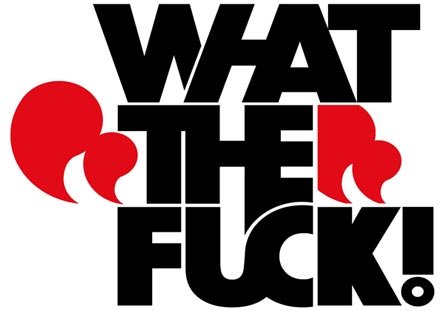
IJCH - Inside JaiChai's Head (Meaning: My Warped, Personal Opinions and Musings)

From the Author:
Salutations.
I am JaiChai.
And if I haven't had the pleasure of meeting you before, I'm delighted to make your acquaintance now.

I invite you to interact with everyone, learn, and have as much fun as possible!
For my returning online friends, "It's always great to see you again!"
"The Ole' Paper-Based Document Days"
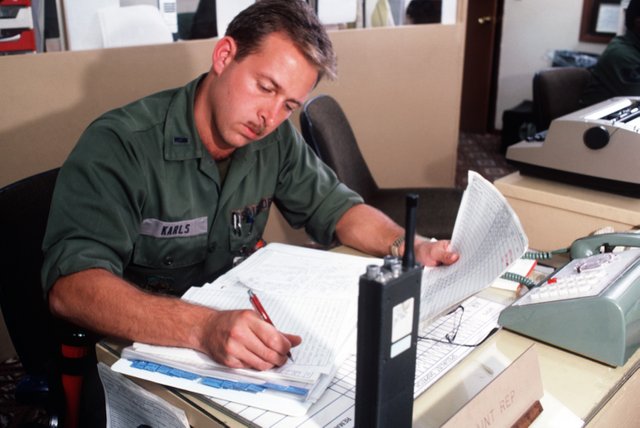
I was on active duty in the United States Military from the beginning of the 80's until the early 2000's.
Every 3-4 years, I transferred from one command to another. And before each transfer, I was required to complete the infamously frustrating command check-out process.
This entailed getting clearance (a signature or stamp) from all major departments to prove that I wasn't leaving any unfinished business behind.
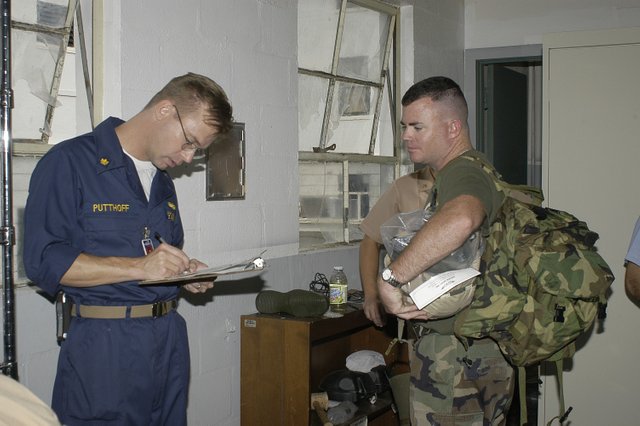
(And to mess with me one last time, those with clearance authority were frequently unavailable or had "just left the office a mere seconds ago".)
During the process, I took custody of my official records (i.e., service record, training record, pay record, health record, etc.); which were all paper-based.
I put them all in one box for transport (aka hand-carried) to my next command.

Once I got all the required signatures and stamps, I was finally "Blessed to Go Forth"...

But...
Many times, my check-out process was delayed because the medical records department couldn't find my military health record.
WTF!?
I always tried to be like Mr. Spock; that is, approach things in a calm, logical manner. But when it came to repeated incidents of lost medical records, I was instantly and absolutely incredulous!

I mean, with an established, straightforward, color coded filing system, how the Hell do records routinely get "misplaced"?
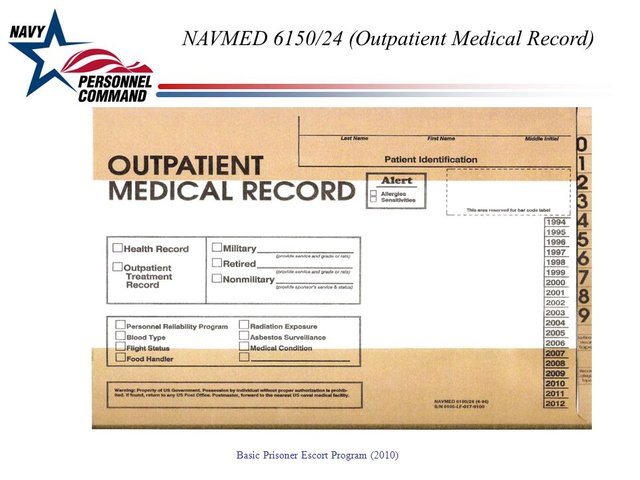
Health Record Shenanigans
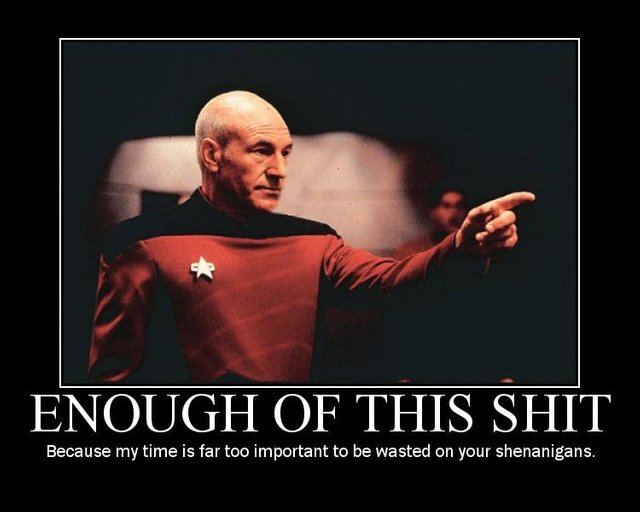
During yet another episode of a "lost medical record", I ended up in a pointless debate with some obnoxious neanderthal - whose size was only matched by the extent of his stupidity.
"Maybe you checked out your record a long time ago and forgot to return it? That happens all the time, you know?" he said, appearing quite smug.
Feeling my patience dissipating fast, I forced myself to remain calm - barely.
Through gritted teeth, I said, "Listen. I'm sure I didn't do that. What's it say on the pink check-out card?"
He said, "There's no pink card either."
Then he picked up a magazine and promptly began leafing through its pages as if I wasn't there!
My brain was screaming:

At my wits end, I slapped the counter, pointed to his forehead, and yelled, "HELLO! Is anybody in there? I'm still here! Son, let's make a deal, OK? Why don't you at least fuckin' pretend to work and I'll pretend to care if you're still fuckin' breathing at the end of this highly congenial encounter! Comprende amigo?"
Luckily, a buddy of mine heard the commotion, saw the look on my face, and persuaded me to discard any notions of doing bodily harm to the "poor, severely uninformed young lad".
(What I REALLY wanted to do was drag that arrogant, dirtball SOB into the parking lot by his lips and impart my style of "wisdom" on his puny ass "brain housing unit"!)

Later, at one of our favorite bars off-base, I thanked my buddy for helping me stay in control.
I bought him a couple of beers while he patiently explained to me what he believed to be the four main reasons why records go missing:
1. The Sheer Number of Records

I've seen Medical Record Departments so large that they occupied whole floors of major Military Treatment Facilities. And even with aggressive archiving, they continually threatened to claim more territory.
2. Non-compliance with Check-Out/Check-In Procedures
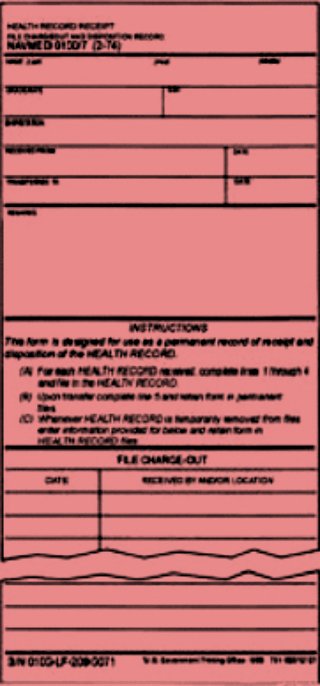
At the time, the military used a simple check-out/check-in procedure using the NAVMED 6150/7 "Charge Out Form, Health Record Receipt" - a pink colored, rectangular card that served as both a bookmark for the record's place on the shelf and as a transfer check-out card.
Although simple to use, this procedure was often neglected.
And here's why...
3. Substandard Staff

The medics assigned to health records were not the star performers of the bunch. They were shit-canned to health records duty for reasons such as: being a lazy ass, being dumber than a box of rocks, or chronically being "misunderstood" by the military police.
4. Malicious Behavior

More commonly than you'd think - and for every bizarre reason under the sun, health records mysteriously vanished into thin air.
They could easily be stolen, hidden, or destroyed by anyone with access and a sufficient axe to grind.
And since solid evidence of foul play was rarely discovered, the perpetrators seldom got arrested and taken into custody - much less prosecuted.
(It struck me as being quite odd and rather presumptuous for any Department Head to leave the responsibility of such sensitive, medico-legal documents [health records] to the scumbags of the unit?)

When Medical Records are Lost

Loss of a health record (military or not) causes many things - and all of them are bad.
For example:
Continuity of care is irreparably damaged, erased; resulting in repeated medical examinations and laboratory tests.

Required immunization series must be started from scratch.
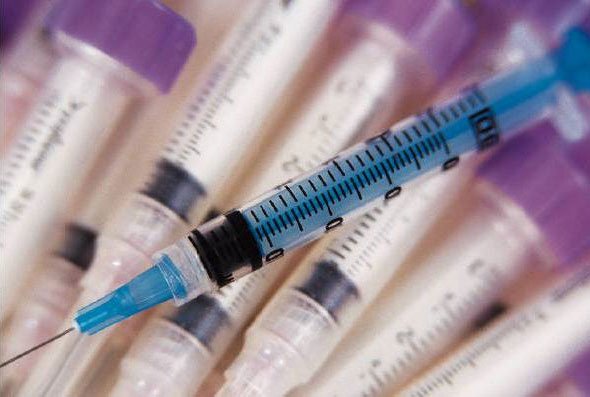
Private information has been compromised and can be used for all sorts of nefarious purposes.

The Significance of Medical Documentation

In 2004, I called up my Commanding Officer and said,"Sir, you can put a fork in me. I'm done. Time for me to retire."
I attended the "Separating from the military Seminar", got my retirement physical examination, scheduled the final shipment of household goods, and sold my Japanese car.
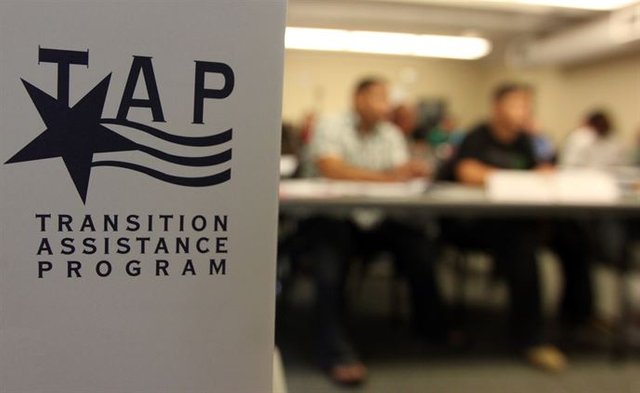
I verified the beneficiaries on my Survivor Benefit Plan (Family Life Insurance), and proceeded to make several copies of my health record - of course, still paper-based at the time.
With a Hell of a lot of medical documentation from being operational most of my career, my full history of medical care was enough to fill three thick volumes!

It was a major pain in the ass to copy the front and back of each damn page!
(After that, I'm sure I could easily get a job at any Kinko's!)
And although copying the health record is not a requirement - only a recommendation, it has always been a smart pre-retirement thing to do.
Why?
Because the only way to claim compensation for service connected health issues from the U.S. Veteran's Administration was with official medical documentation.

In other words, all visits to any medical facility, any lab tests completed, treatment and follow-up examinations have to be properly documented or the member's VA benefits could be delayed indefinitely.
Complete medical history includes:
All instances of exposure to hazardous chemicals and gases, traumatic injuries, as well as chronic conditions that steadily worsened throughout a servicemen's career, such as hearing loss, joint pain, sinusitis, etc.

Unfortunately, I have many Military Veteran friends who neglected to copy their medical records prior to retiring and are now having a very difficult time receiving the medical benefits they earned from their service.
So, now you're acquainted with the problems of paper-based medical records that I've experienced first-hand in my life.
Now it's time to come to the present and learn about the first generation of remedies for those ailments of paper-based medical documentation.
It's called the Electronic Health Record - "EHR" System.
The Electronic Health Record System - Fixing a Few Flaws
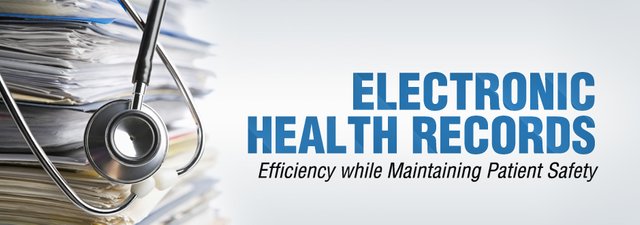
An article named "A comparison of electronic records to paper records in mental health centers" in the International Journal for Quality in Health Care, Volume 20, Issue 2, 1 April 2008, Pages 136–143 states:
Electronic medical records provided medication documentation that was more complete and faster to retrieve than paper records across all centers [Departments] and within each center.
On average, electronic medical records were 40% more complete and 20% faster to retrieve.
As seen in the below images, there are many advantages of EHR compared to paper-based medical records:
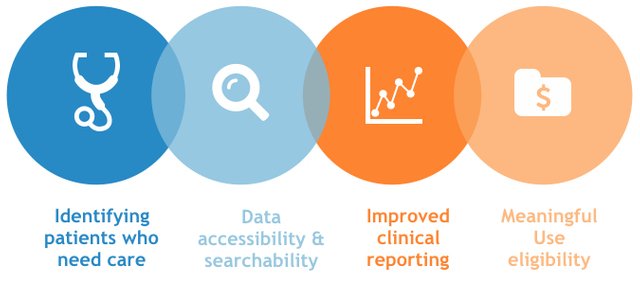
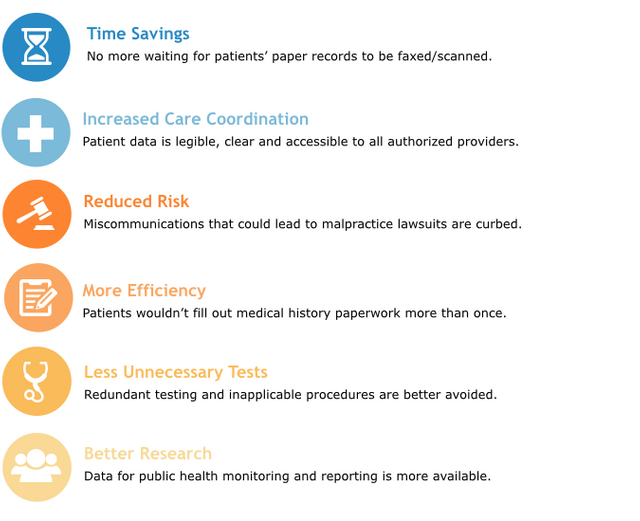
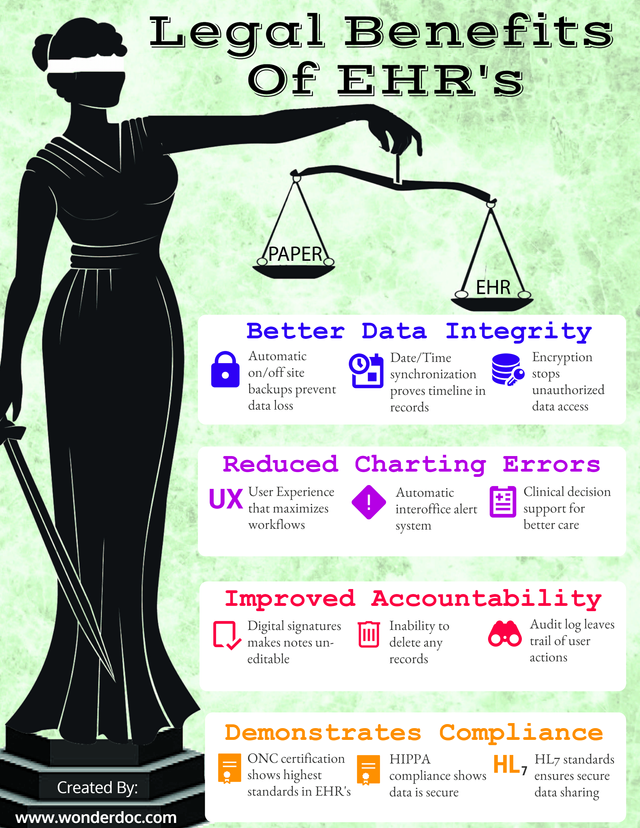
Current EHR Systems - Some Chinks in the Armor
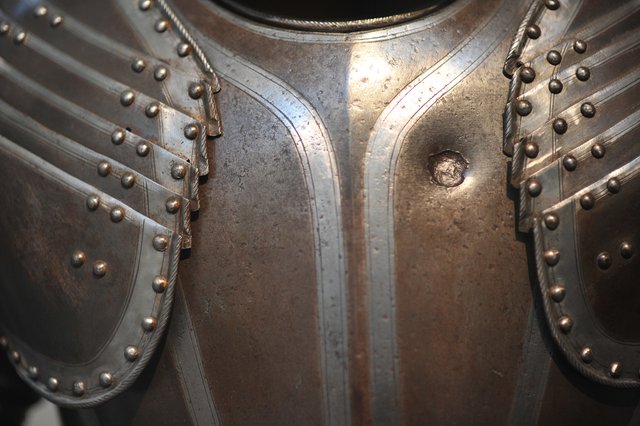
Even though the EHR System is far superior than paper-based medical documentation systems, it is also far from being perfect.
Traditional record keeping software is customized based on the requirements of the healthcare providers; and therefore, is inherently incompatible with other individualized software.
This proprietary approach of software implementation is responsible for the rampant fragmentation in the electronic medical documentation space where different treatment facilities' systems can't effectively communicate with each other (translated: Interoperability is almost nil!).
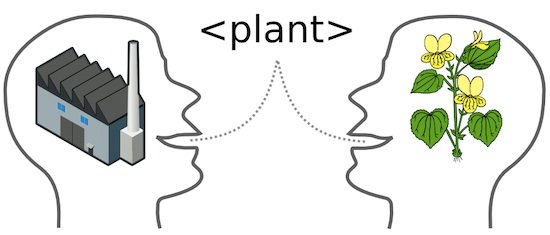
Medical data that is non-transferable ends up being siloed at its origin: effectively putting up multiple barriers for inter/intra-hospital data sharing.
This has a frustrating domino effect among all participants within the system (i.e., patients, providers, researchers and regulators).

Without a formal standard for privacy and security in traditional medical record software, there is no legal obligation to ensure it.
It's basically a "caveat emptor" scenario.
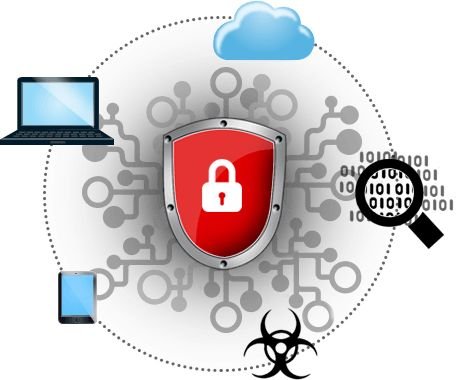
And unless there is an expert available on staff, most organizations are forced to buy expensive outside help to periodically test for vulnerabilities and evidence of compromise.
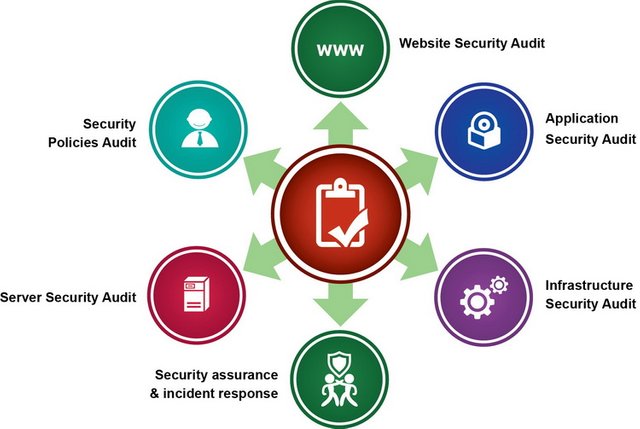
Currently, many patients have the option to forego medical insurance. And this is reflected in the medical software's menu.
But those individuals can suddenly find themselves in severe financial extremis with just one medical emergency - not to mention a diagnosis of a debilitating or terminal illness.
With no built-in recommendations for pre-catasrophic options, most existing and new patients go about their business in ignorant bliss.

Most conventional record keeping software holds the patient's medical information hostage. Access to their medical data is drastically restricted (or denied altogether) until their medical bills are paid.
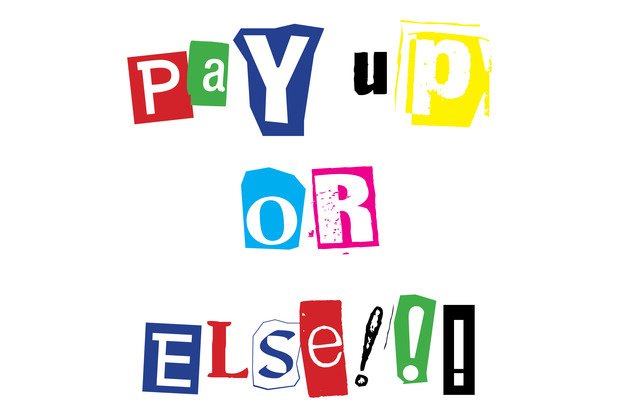
IMHO, this is not only unethical - a form of extortion, it opens up a vast territory for fraud and manipulation during the billing and claims process.
Additionally, it puts the kibosh on further sharing of a patient's history of medical diagnosis, lab tests, treatment, and follow-up care with subsequent healthcare professionals until accounts are settled.
A Few Words about HIPAA

What is the purpose of HIPAA?
The act, which was signed into law by President Bill Clinton on Aug. 21, 1996, contains five sections, or titles.
HIPAA, also known as Public Law 104-191, has two main purposes: to provide continuous health insurance coverage for workers who lose or change their job, and to reduce the administrative burdens and cost of healthcare by standardizing the electronic transmission of administrative and financial transactions.
Other goals include combating abuse, fraud and waste in health insurance and healthcare delivery and improving access to long-term care services and health insurance.
HHS expanded the act when it put the HIPAA omnibus rule in place in 2013 to implement modifications to HIPAA in accordance with guidelines set in 2009 by the Health Information Technology for Economic and Clinical Health (HITECH) Act.
These guidelines concern the responsibilities of business associates of covered entities. The omnibus rule also increased penalties for HIPAA compliance violations to a maximum of $1.5 million per incident.
MediBloc - A Superior Blockchain Based Solution for the Medical Documentation Space
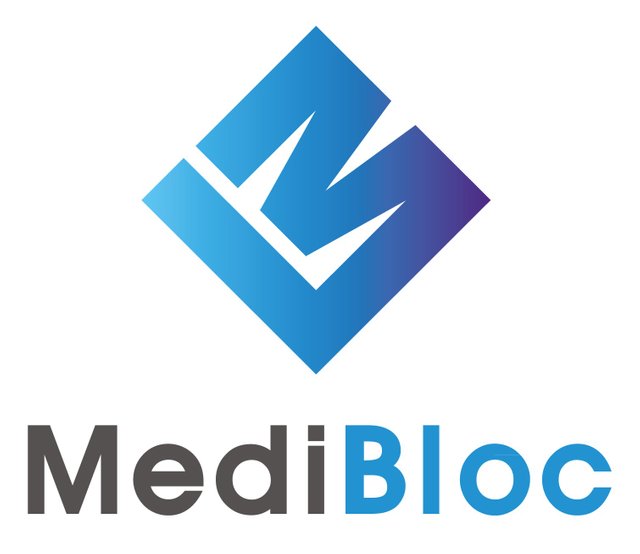
Unlike current medical record systems that are slow moving, expensive, and centralized (meaning: single points of failure and opportune targets for attacks), MediBloc is an agile, adaptive, and decentralized healthcare information platform built on modern blockchain technology.

MediBloc significantly reduces costs by eliminating unnecessary middlemen, communication barriers, and information bottlenecks (e.g., medical data silos).

With MediBloc, all participants within the MediBloc ecosystem can benefit from fast, fair and secure sharing of all types of medical data.
MediBloc makes healthcare more accessible to patients using a redistributed data ownership model. This means that hospitals can't monopolize a patient’s data; truly giving access to the medical information back to its owner!

Records tampering, theft, and data loss is virtually impossible since all sensitive information is stored on a decentralized network 24/7.
Furthermore, strict protocols are implemented to ensure that only authorized healthcare personnel are given access to the MediBloc blockchain.
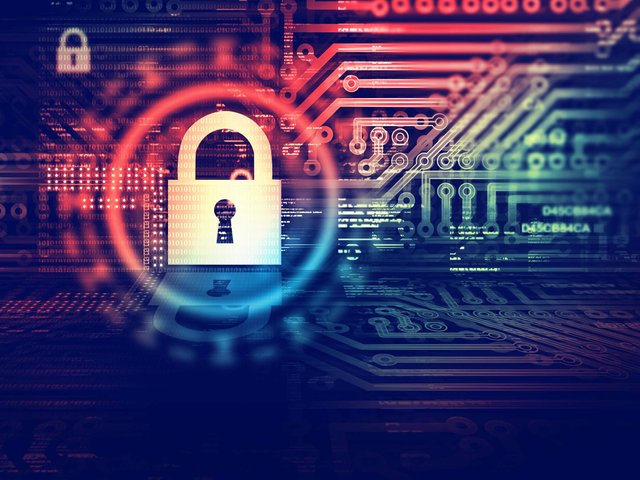
This is possible through MediBloc's use of robust, open source, and secure protocols.
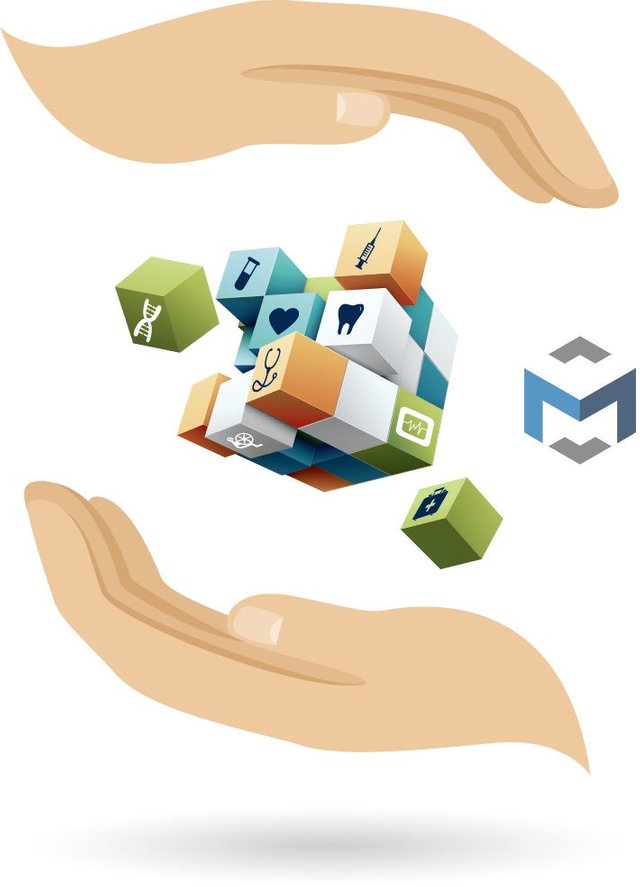
Oh, by the way, did I mention that these protocols will also guarantee full HIPAA compliance?!
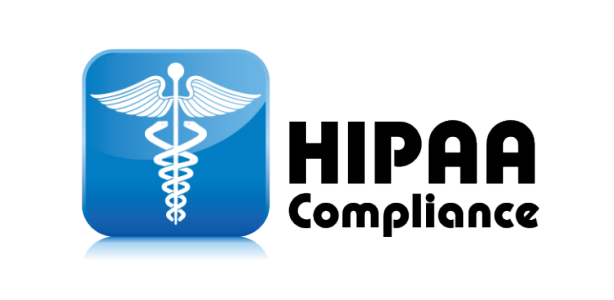
Here's a nice MediBloc Introductory Video:

How the MediBloc Platform Functions - Brief Overview
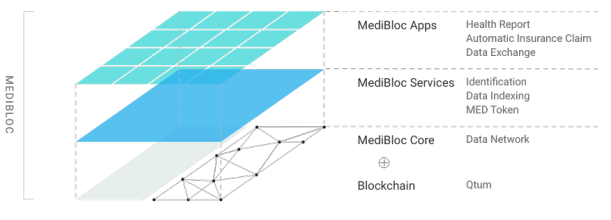
The MediBloc platform is on the EVM (Ethereum Virtual Machine) and consists of three main components (Core, Service and App layers).
Each layer contains vital information and process data PRN (as needed).
For example, the Core layer encryptically safeguards medical information; while the Service layer is the "go-between agent" that ensures seamless interactions between the Core and App layer (which, as the name implies, deals with applications-related tasks).
These three layers combine to ensure that the MediBloc platform is reliable, efficient, and secure.
MediBloc's Medi Point System - Old Hat for Us Steemians

The Medi Point system should feel like old hat to us Steemians.
We're used to dealing with Steem, Steem Power, and Steem Dollars.
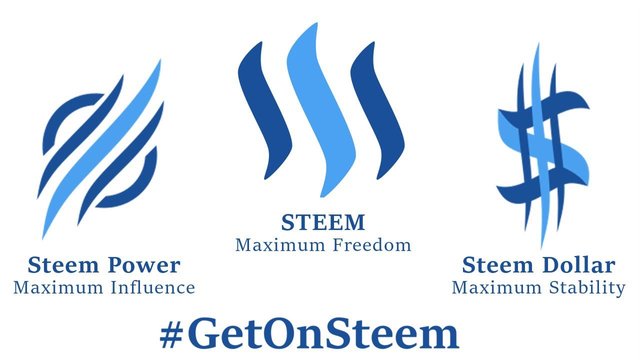
And similar to Steemit's internal use and external use tokens, MediBloc has a token that facilitates internal transactions (called Medi Points or "MPs") and an external use token called "MED" that is tradable with other ERC20 tokens on the broader Ethereum blockchain market.
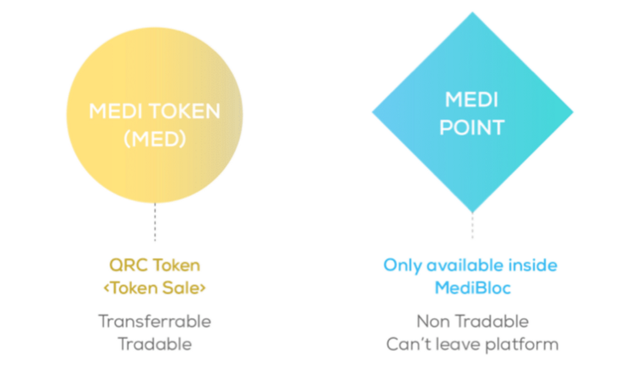
MediBloc's Medi Point System tracks all user actions that contribute to the ecosystem and distributes MPs according to its reward system.
This reward system matches MPs earned to the level of platform participation and amount of impact on the whole ecosystem.
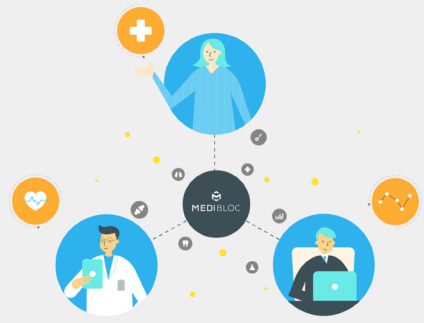
Oh yeah, again, just like the conversion of tokens on the Steemit platform, on the Medibloc platform, MPs can be converted to MED tokens - and vice versa.
MediBloc - The Company
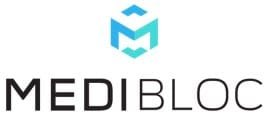
As Dr. Allen W. Kho, MediBloc CEO, states:
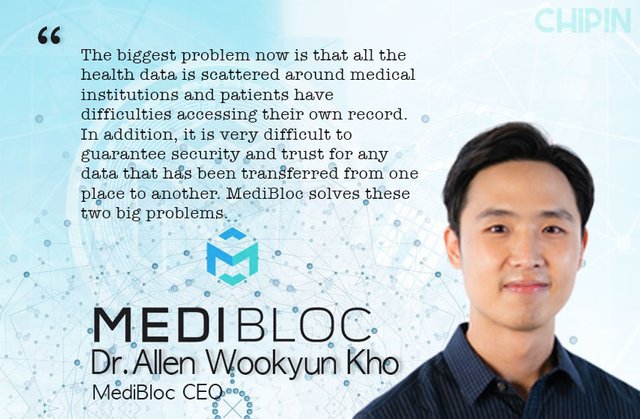
MediBloc’s mission statement:
“...improve healthcare access and experience by redistributing value of personal healthcare data, accelerating the world’s shift to private information decentralization.”
Founded in Seoul, South Korea in 2017 by a team of medical doctors and developers, it’s a privately held company that (as of this writing) has 10 team members and 10 advisers.
Co-Founders Dr. Allen Wookyun Kho and Dr. Eunsol Lee are both board certified medical doctors AND software engineers.
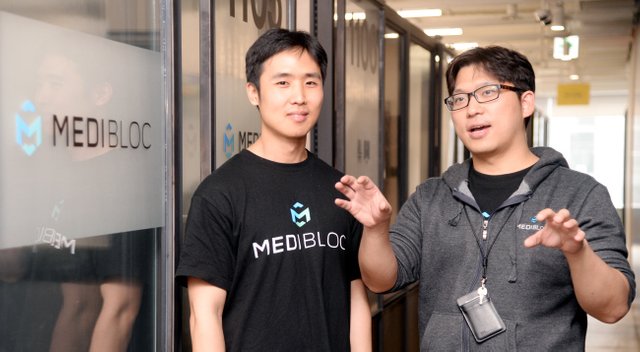
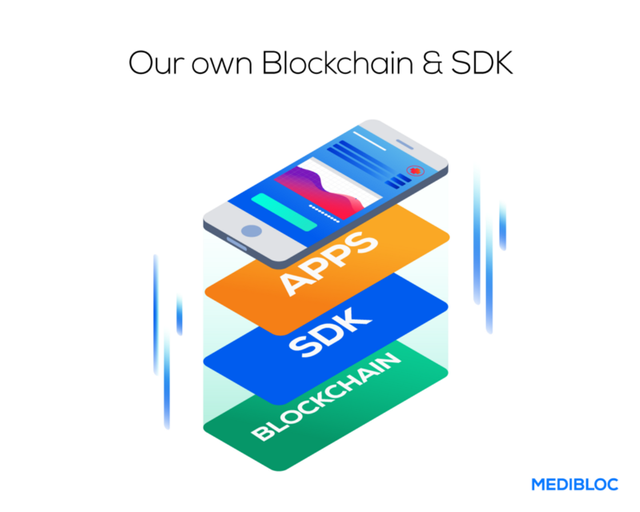
For those of you who are unfamiliar with development terms, think of MediBloc SDK as a ‘magic wand’: without MediBloc SDK, developers who wish to create and use the features that were just mentioned would have to use the API of core blockchain as well as many other server components.
And that’s where the magic wand comes in handy. It significantly reduces developers’ workload as it reads data from blockchain, creates transactions, converts medical data into any desired format, and gets done all the complicated calculation of data hash with a couple of functions on the codes — just like magic!
Conclusion
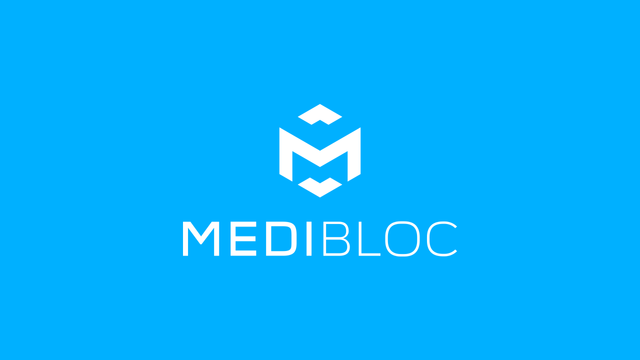
MediBloc has all the markings of a project worth considering.
Its focus on patients and enabling a higher quality of care through blockchain technology puts them head and shoulders above the crowd in the medical documentation arena; a territory where most organizations are still stuck in the outdated, expensive, and non-transparent business model called centralized enterprise.

MediBloc has viable solutions for all the ailments plaguing today's electronic medical record space (e.g., centralization, HIPAA compliance, low privacy/security, shady billing and access practices, and much more).
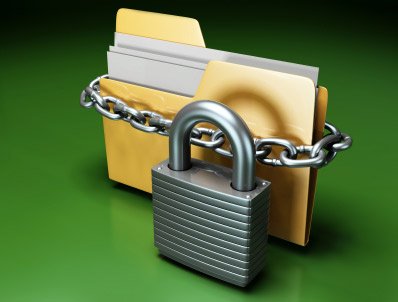
The innovative MediBloc ecosystem incentivizes all platform enhancing activity based on an equitable rewards system that will surely promote both member expansion and economic growth.

They have a solid team of multi-talented, experienced individuals and thus far, have never over-promised, nor under-delivered.

I'll be closely watching this project.

Parting Shots

More details about MediBloc, such as token distribution and history, white paper, social media, contact information, and much more can be found at:
The MediBloc Team

This is an entry for @originalworks' "640 STEEM ~ Sponsored Writing Contest: MediBloc".
If you would like to submit your own entry, simply visit:
https://steemit.com/crypto/@originalworks/640-steem-sponsored-writing-contest-medibloc
By JaiChai

Mighty Kind of You for stopping by.
Truly hope to see you again!

About the Author
Believing that school was too boring, he dropped out of High School early; only to earn an AA, BS and MBA in less than 4 years much later in life – while working full-time as a Navy/Marine Corps Medic.
In spite of a fear of heights and deep water, he performed high altitude, free-fall parachute jumps and hazardous diving ops in deep, open ocean water.
After 24 years of active duty, he retired in Asia.
Since then, he's been a full-time, single papa and actively pursuing his varied passions (Writing, Disruptive Technology, Computer Science and Cryptocurrency - plus more hobbies too boring or bizarre for most folk).
He lives on an island paradise with his teenage daughter, longtime girlfriend and three dogs.





One would think that records in general would be 'tip top' because its the military, it should be. Only those who have served and their families see what kind of a disaster it all is.
Having done medical records (mostly radiology) just prior to things starting to be digitized, finding lost records were a major pain in the ass. We would find them though. We had to. Not finding them was not an option. This was also right as HIPAA was being implemented. I remember thinking this is all going to be a mess.
In 2007 we moved to Grand Junction, CO. We had discovered the most amazing thing. The town actually had everything on EHR. It was a test area to see how efficient the process was and IS. It is great to go from your regular doctor to a specialist without having to cart things around. If you had an x-ray...they pulled it up right there with you,regardless of where in town it was taken. One would assume at this point the VA would have the same standard....I found out that is the furthest from the truth.
Maybe MediBloc is part of the answer. The biggest question is which system? For it to work nationwide, it should be 1 system. As I am finding out there are several and for each hospital, doctors office, etc they would have to pay a subscription fee to access whichever system is being used by said facility.
Someday, somewhere someone might remove their head from their hind quarters and actually do something about all of this.
you lost me half the way :) sorry..... for me it was a bit to long to follow :) but nevertheless nice work and effort..
I apologize.
You're right. It's a long post for a blog submission.
But to make sure I met the Contest Rules requiring at least 70% original stuff and a minimum of cited "fluff" and cheap "spinners", I erred on the side of length (no penalty for being too long, while being too short is disqualifying).
Thanks for your generous support.
Namaste, Jaichai
Indeed so much waste and neglect is carried around in systems and centralization; it's frustrating only to read about it, not to mention to actually having to deal with it. I didn't go through all the post as i was already ready to smash up my laptop reading through all the ignorance that's floating in there, but i hope the crypto project is a solution to make things sort of better . Though i don't know.. you put US, crypto, and responsability in one pot - it's surely very sediment-ed, like oil and water. Thanks for sharing though. Cheers
Thanks a lot for visiting and the detailed, awesome comments.
Namaste, JaiChai
This post has been submitted for the @OriginalWorks Sponsored Writing Contest!
You can also follow @contestbot to be notified of future contests!
Excellent post